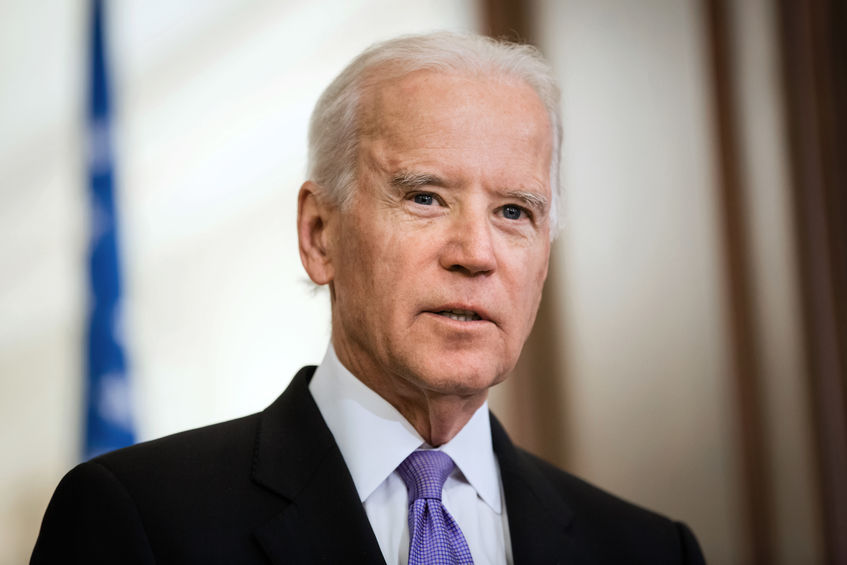Kevin Travers was a Reporter at deBanked.
Articles by Kevin Travers
PPP Deadline Extended, Jobs Act Proposed
April 1, 2021 President Biden signed a law extending PPP lending until May 31st. The PPP Extension Act passed through Congress on March 25th and will allow businesses to access emergency loans past the original March 31st deadline.
President Biden signed a law extending PPP lending until May 31st. The PPP Extension Act passed through Congress on March 25th and will allow businesses to access emergency loans past the original March 31st deadline.
According to the PPP loans tracker, as of 3/21 the SBA has disbursed $718 billion of the $806 billion available, leaving $88 Billion left for funding. Businesses will be able to apply until the new deadline, and the SBA will be able to process applications until the end of June. The new filing deadline gives the SBA some breathing room to review the 234,000 applications currently in the queue.
Biden signed it a day after unavailing a $2 trillion American jobs and infrastructure plan, aimed at revitalizing roads, bridges, and protecting the environment. The money is split into a cross-section of infrastructure, subsidies, like $100 billion toward bringing broadband internet to 30 million Americans, $50 billion toward semiconductor research, and $174 billion toward electric car manufacturing.
Not every spending point is for future tech. There are lump sums for healthcare, like $400 billion for long-term elderly care, and $30 billion for pandemic preparedness.
Biden has said he plans to pay for the expenses through the Made In America corporate tax plan raising the corporate tax rate from 21% to 28% after President Trump leveled the tax from 35%.
NY Legalizes Pot, Immediately
March 31, 2021 New York City is going to be blazing this weekend.
New York City is going to be blazing this weekend.
Apparently, the Northeast has had nothing to do but sit inside and smoke weed or eat edibles for more than a year, and the laws finally caught up.
New York lawmakers passed the Marijuana Regulation and Taxation Act in the state Senate on Tuesday. Twelve hours later Governor Cuomo signed the bill, ensuring adults over 21 will be able to toke freely in N.Y.
Effective immediately, adults can carry three ounces of cannabis, store five pounds of the stuff at home, and grow up to six plants per person for personal use. The law creates the Office of Cannabis Management to oversee the markets, setting a sales tax of 13%- 9% state 4% county and municipal on the kush. There will also be a tax on THC content and layers of sales taxes that could bring the total above 20%.
Just like in the N.J. legalization- cops can’t stop a car because it smells like skunk. The new regulatory office will be set up over the next six months. Expungement of past convictions will be made easier: two years after the law goes into effect on Wednesday.
In the bill, specific language aims 40% of the new industry’s tax proceeds toward minority communities disproportionately affected by the state’s drug laws.
“By directing new tax revenues to communities like the ones I represent; easing the pathway to enter this business for new and small companies, and ensuring qualified applicants of color have prioritized access, this bill paves the way for a brighter future” 20th district, Brooklyn State Senator Zellnor Myrie said in a statement. “New York’s marijuana legalization framework can be an equitable, responsible, and growth-oriented model for the rest of the country.”
Now, two-thirds of the Northeast’s 56 million residents live in states that have legalized recreational cannabis.
Governor Cuomo, recently under calls to resign for allegations of sexual assault and harassment, said in a statement that it is a historic day for New York. According to the statement, the legislation could create up to 60,000 jobs and generate $350 million in annual tax revenue for the state. Based on the markets’ size in states that have already legalized pot, the N.Y. weed industry could be a $4 billion cash cow.
Some lawmakers were unhappy with the passage of the bill. State Senator George Borrello voted no and said in a statement that the state’s one-party rule was more concerned with appeasing special interests than creating responsible policies. He and other naysayers cited concerns about driving under the influence of marijuana.
“While I am personally opposed to legalization if New York is determined to head down this path,” Borrello said. “I believe we have a responsibility to craft a law that mitigates the risks to New Yorkers to the greatest extent possible, with no loopholes or gray areas. Regrettably, this bill doesn’t meet that standard.”
PayPal Enables Purchasing With Bitcoin
March 30, 2021 PayPal launched Checkout with Crypto, allowing users to use Bitcoin, Litecoin, Ethereum, or Bitcoin Cash to checkout at more than 29 million PayPal merchants.
PayPal launched Checkout with Crypto, allowing users to use Bitcoin, Litecoin, Ethereum, or Bitcoin Cash to checkout at more than 29 million PayPal merchants.
“As the use of digital payments and digital currencies accelerates, the introduction of Checkout with Crypto continues our focus on driving mainstream adoption of cryptocurrencies,” CEO and President Dan Schulman said. “Enabling cryptocurrencies to make purchases at businesses around the world is the next chapter in driving the ubiquity and mass acceptance of digital currencies.”
The transactions will be settled in cash by PayPal automatically, and the firm said it does not plan on holding the coins and will likely sell the balance off. PayPal had previously offered to buy, sell and hold cryptocurrencies on their platform through a partnership with Paxos Trust Company.
PayPal said it added crypto purchasing to engage more customers with online merchants and make their purchasing platform more accessible.
How will the transactions be taxed? The terms and conditions state that PayPal will provide 1099 forms and report to the IRS, but “it is your responsibility to determine what taxes, if any, apply to transactions you make.”
A lot of Crypto news happened at once. Yesterday, Visa announced a USD Coin program, aiming to allow transactions to be settled through a stable coin backed by the USD.
Midtown Dead? No, It’s A Good Time to Buy
March 25, 2021 When it comes to working from home and the flight from midtown Manhattan offices the past year, one expert on commercial real estate said it isn’t the end of the metro area way of life: it’s a great time to buy.
When it comes to working from home and the flight from midtown Manhattan offices the past year, one expert on commercial real estate said it isn’t the end of the metro area way of life: it’s a great time to buy.
“There’s some great deals. I mean, on both rents, leases, and purchases in many of these markets. So tremendous opportunities, and there’s a lot of power on the sidelines, who is well aware of it,” CEO Anthony Romano of the Commercial Real Estate analytics firm CREtelligent. “In San Francisco, Manhattan, in Dallas in the Miami marketplace, there’s some incredible opportunities that I think people will seize.”
At CREtelligent, Romano helped launch the Radius platform, an all-in-one automated appraisal platform that draws site data for identifying commercial properties. When he joined the firm, he aimed at making the commercial real estate world as seamless as some residential loans.
“Before, during, and after the commercial real estate transaction, it’s super inefficient,” Smith said. “We wanted to say, how do we fix it? A client of ours, an investor, a broker, a bank, or anybody who’s involved in the transaction, can come to the Radius platform and put in an address and APN, and identify their property.”
Instead of ordering 10 or 12 assessments from a handful of sources, a processor must only visit the CREtelligent site. Based on the know-how it took to create the platform, Romano said the trends like the 10 year Treasury return are directing the CRE market on the up and up in the coming months.
Romano said that most commercial properties have a Loan-to-Value (LTV) ratio of about 70% in his experience. If a large office building or retail store has a $10 million mortgage keeping it open, it would have to drop by $3 million before the bank starts getting uneasy- a point the market is nowhere near.
Steve Denis, SBFA on Why Maryland MCA Bill Failed
March 22, 2021 “In a lot of these places, a lot of the bills are well intended, believe it or not,” Steve Denis, executive director of the Small Business Finance Association, said. “Legislators just don’t understand enough about our industry to understand the nuances. We’ve worked really hard educating policymakers in Maryland, and frankly, they now understand our industry better.”
“In a lot of these places, a lot of the bills are well intended, believe it or not,” Steve Denis, executive director of the Small Business Finance Association, said. “Legislators just don’t understand enough about our industry to understand the nuances. We’ve worked really hard educating policymakers in Maryland, and frankly, they now understand our industry better.”
Denis was referring to the nearly unanimous canning of Maryland’s MCA “Prohibition” bill last week. The bill failed to get enough support to leave the committee, blocked by a 19 to 3 vote against bringing the law out to the House floor. Denis, a proponent of the MCA and alt financing industry for years, said it was due to legislators understanding the need for capital “out there during the pandemic” and how harmful an APR cap could be for both business owners and the broker industry.
The law was originally proposed last year before covid shutdowns, but that also failed to make it to the floor. It now appears to be an annual event.
“Our goal as an organization is to make sure that small businesses have access to all different types of financial products and that we believe that small businesses are in the best position to make good decisions for their businesses,” Denis said. “The bill in Maryland narrowly targeted MCA products, and as you know and a lot of folks in the industry know, that sometimes MCA is in the best interest of the business, there’s a lot of benefits to an MCA.”
Denis punctuated his statement with the mantra- we were not out of the woods yet. An APR disclosure bill was just introduced in the Connecticut State Senate last month, modeled off the New York APR bill set to go into effect this year. Denis was hopeful the legislators could learn from speaking to industry interests and change their course like in Maryland.
“We are engaged, I think we’re in a good spot. With any of these bills, Maryland, Connecticut, I caution you know we’re not out of the woods yet,” Denis said. “We still want to work really closely with policymakers. We’re for meaningful disclosure, we think there needs to be some guardrails on our industry, but I think that the most important thing we can do is continue to educate folks in states.”
Merchant Cash Advance is as Old as The Renaissance
March 21, 2021 The first merchant cash advance enthusiast ended up the richest man in the history of the world. Jakob Fugger was the cash king of Europe 500 years ago, and his climb to wealth indirectly caused the Protestant Reformation. One of the pivotal events in western history, the Reformation led to the eventual “fad” of democratic representational government— all because some guy bought the future receivables of a silver mine.
The first merchant cash advance enthusiast ended up the richest man in the history of the world. Jakob Fugger was the cash king of Europe 500 years ago, and his climb to wealth indirectly caused the Protestant Reformation. One of the pivotal events in western history, the Reformation led to the eventual “fad” of democratic representational government— all because some guy bought the future receivables of a silver mine.
In Jakob Fugger the Rich, historian Jakob Strieder writes the Fugger enterprise began as one of the upstart merchant families of the Renaissance. The Fuggers were traders and cloth merchants from Augsburg, Germany. They created a network of aristocratic clients, furnishing weddings and parties through trading warehouses in modern-day Venice, Florence, and Austria. Jakob Fugger I lent some money around, but when Jakob Fugger II joined the family shipping warehouse in Venice, he looked for a better return on capital.
According to International Business History: A Contextual and Case Approach, Fugger entered an agreement to supply some cash- 23,627 Florins to a silver mine owned by Archduke Siegmund in 1487.
Siegmund had plenty of silver laying around for collateral; he just needed cash for the day-to-day. It was a collateral-backed loan, common today: if he couldn’t pay it back, the Fuggers would get paid in silver. The transaction worked so well that a year later, Siegmund reapplied, this time in a revolutionary way. Siegmund would get 150,000 florins, and the Fuggers would get paid the future receivables of the silver mine: unrefined and cheap future silver for cash now.
The problem, written by historian Greg Steinmetz in The Richest Man Who Ever Lived, was the Church. Any interest-based transaction was specifically outlawed, though there were hundreds of lenders during this era. The line from Luke 6:35, “Lend and expect nothing in return,” was taken by the Church to mean an outright ban on usury, defined as the demand for any interest at all.

Even savings accounts were considered sinful, but Venetians ignored these rules as they preferred making money to pleasing God, entombed in the motto “First Venetians, then Christians.” Fugger began accepting deposits like a bank to his clients, with a 5% return to investors.
But convicted usurers could be excommunicated and denied a Christian burial, a nightmare for a capitalist who relied on a Christian network. Fugger did not worry about punishment or the apparent sin of money lending, but as he became a fixture in European society, his reputation became increasingly vulnerable.
Fugger needed the laws to be changed, or at least relaxed, or his lending business was in trouble. In 1515, he wrote a letter to Pope Leo X and funded a debate in the St. Petronius Basilica in Bologna. The debate ran for five hours, a back and forth of philosophy, scripture, and rampant crowd heckling. In the end, it was declared a tie, but Pope Leo X that year signed a papal “bull” reforming the concept of usury.
Originally, the Church pointed to the philosopher Aristotle’s model for determining what was okay to charge for and what wasn’t. Aristotle had said that charging someone for a cow because it produced milk was fine, but money was a dead thing and unfair to profit from.
A silver mine produced silver and as such paying cash for the future proceeds of the mine had allowed Fugger to more or less carry on his business. It wasn’t called merchant cash advance back then but he applied that model wherever he could. Not everyone in need of money had a business, however, and it was critical that he be allowed to charge interest when circumstances called for it.
More than a millennium after Aristotle, Pope Leo X found that risk and labor involved with safeguarding capital made money lending a living thing. As long as a loan involved labor, cost, or risk, it was in the clear. This opened a flood of church-legal lending: Fugger’s lobbying paid off with a fortune.
 Jakob Fugger was off to the races and he greatly expanded his financial services business. Historian Dennis McCarthy found that the Fugger family grew their war chest nine times over in the next seventeen years, a gain of 927%. Their funding efforts bought a trading empire, and they entered into agreements with nobles that placed entire countries as collateral.
Jakob Fugger was off to the races and he greatly expanded his financial services business. Historian Dennis McCarthy found that the Fugger family grew their war chest nine times over in the next seventeen years, a gain of 927%. Their funding efforts bought a trading empire, and they entered into agreements with nobles that placed entire countries as collateral.
McCarthy wrote: That was one of the problems with the Fugger model- “how does one take possession of Austria or France or Spain when its rulers default or lag behind debt repayment schedules?”
After gaining the good faith to lend in the Church’s eyes, the papacy itself became a Fugger customer. Positions in the Church were inseparable from social and political power, and the only way to get a place on the totem pole was by paying for a title. Just as the richest silver mine owners didn’t have the cash to pay for lunch- so did wealthy aristocrats need capital to afford positions in the cloth.
By the time Martin Luther “nailed” his 95 theses to the door of a church in 1517, he was rallying against the Fugger funding family and its stranglehold on the Roman Catholic Church.
It all came down to an in-house promotion. Albert Brandenburg brought a whole new meaning to the concept of “moneychangers in the temple.” A German Archbishop of Magdeburg, Brandenburg was promoted to Elector of Mainz: the second in command of the Holy Roman Empire. Unfortunately, he had to pony up 21,000 ducats to pay the Roman Curia (the Church’s admin)- for the title. Naturally, he didn’t have the cash, and the Fuggers stepped in.
Brandenburg got a loan on interest. To pay it back, he also paid Pope Leo X for the right to sell indulgences. Indulgences were contracts the church sold to forgive sins, allowing believers to purchase their way out of purgatory and into heaven. A fresh round of indulgences was printed to fund the construction of St. Peter’s Basilica, and Brandenburg was entrusted to sell them in 1517. (Their sale was later banned by the Church in 1567).
The sale of indulgences  interlinked the Church with Fugger, and solidified Luther’s desire to maintain the Faith through an alternate system. Luther’s complaints spawned the Reformation, and his followers and independent revolutionaries like John Calvin would bring the rise of Protestantism, the Church of England, and ultimately what historian Alec Ryrie wrote as the foundation of modern mercantilism.
interlinked the Church with Fugger, and solidified Luther’s desire to maintain the Faith through an alternate system. Luther’s complaints spawned the Reformation, and his followers and independent revolutionaries like John Calvin would bring the rise of Protestantism, the Church of England, and ultimately what historian Alec Ryrie wrote as the foundation of modern mercantilism.
“I’m saying that there are some specific parts of modern life that derive directly from the Protestant Reformation. We couldn’t have these features if it hadn’t happened.” Ryrie said. “That combination of free inquiry, democracy, and limited government is pretty much what makes up liberal, market democracies. It runs the modern world.”
To this day, no one is sure of the extent of the Fugger fortune. Historian Mark Häberlein found that Fugger struck a deal with Augsburg Tax authorities in 1516: he agreed to pay an annual lump sum on the condition that his family’s true wealth would never be revealed. He died in 1525.
To get an idea of the extent of his wealth, we can base calculations on the cost of butchering a pig in 1522 (yes, that’s a real metric.) It cost one Gulden, a new coin minted in 1500 to butcher a hog. The German coin contained about the same amount of gold as a Florin.
Based on those ham prices, Jim Ulvog from Ancient Finances estimated that in 2017 a single florin would be worth ~$900, and other writers have put the florin in the same range. Though the true wealth of the Fuggers may never be known, when Charles V aimed to take control of the Holy Roman Empire in 1519, the Fuggers were lending Charles 543,000 guldens to buy votes: approximately $448 million. That’s just in a single deal.
It’s been said that merchant cash advances or sales-based financing is relatively new, but it could be argued that such transactions are so old that life as we know it in the modern world only exists because a guy 500 years ago was engaged in non-loan transactions to fund businesses in a manner that was Church-compliant and wanted to expand.
Back in Person: Southeast Acquirers Association Going Full Speed Ahead With May 24th Event
March 18, 2021 While positive vaccine predictions began slowly peeking their head out of the media mess that was the fall of ’20, John McCormick and members of the Southeast Acquirers Association (SEAA) had a difficult choice to make: When could they begin planning for an in-person conference?
While positive vaccine predictions began slowly peeking their head out of the media mess that was the fall of ’20, John McCormick and members of the Southeast Acquirers Association (SEAA) had a difficult choice to make: When could they begin planning for an in-person conference?
“It was probably October, November: we thought, okay, are we nuts, or should we do it,” McCormick said. “We just kept saying, well, it seems like we keep hearing good news about vaccines.”
With optimism, McCormick and the team slated a late May reopening. Their bet paid off. With vaccine success and viral loads down so far, things look clear for a return to normal this spring, especially for a payments conference in Bonita Springs, Florida. McCormick said the Hyatt Regency, also eager to reopen business, helped with the planning.
“They said ‘we really want you guys to have the show, we need the business,'” He said. “The location itself is beautiful. Tons of outdoor space, and it’s incorporated into the conference facility so people will really be able to break away and give a little more distance, have a one-on-one and not feel like they’re in a crowd.”
Watching a hackneyed, fazed reopening across the US, SEAA had to plan how to make people feel comfortable meeting, doing business no matter where they were from. Along with picking a venue with 26 acres of property to spread out, they decided to use a color-coated sticker system. Red for “keep your distance,” Yellow for “proceed with caution”, Green for “let’s chat,” and purple for “vaccinated.” Hotel staff will also, of course, be tested and carefully managing the food and distancing.
Their sister events company, the NEAA, had to postpone the planned April show in Philadelphia, but as we know, Florida is open for business.
McCormick is a Founder and board member of (SEAA) and has been active in the payments industry since 1995. Like many events companies, he said, SEAA held a virtual conference last year. While the presentations and education sessions were great, the in-person networking and POS demonstrations a vendor could expect from the conference hall experience were just not up to par.
This year, he said his team is focusing everything toward putting on a safe, “back-to-business with caution” show that is seeing unprecedented interest from firms and industry members excited to, well, shake hands again. If guests are still not ready to meet in person, the big presentations will be streamed to the SEAA site and built into a catalog.
So how many people are attending? McCormick said he’s not sure how many will show up to the Hyatt on May 24th but that the registration numbers ten weeks out are already better than in previous years.
“When we first started, we thought we normally get between 800 and 1,000 people, and we thought you if we can get 600, that would be a success,” McCormick said. “I’d feel great about that, and I think we’re going to hit that number. The interest is there.”
He said the interesting part is that larger firms generally involved in conferences were more cautious this year. A smaller firm with one to 20 people is more likely to say, “Okay, whoever feels comfortable, if you’ve been vaccinated, go ahead and go.” But it’s the larger companies that have called and said, look, we’d love to be there, but we have to wade through legal and manage to approve it.
Still, larger partners this year are excited to sponsor the event, happy to send support for a conference-leading the way back open. McCormick said he’d seen some innovative ways firms are trying to bring their products to the conference platform, like scannable QR codes for video demonstrations. The pandemic has brought virtual innovation, but many people, McCormick said, are excited to return to normal.
“You know, we’re getting awfully close. I really feel like we’re getting there,” McCormick said. “This is the hardest time because you feel it, you can see the light at the end of the tunnel, but if we can just hang on and be responsible for a couple more months, we’ll get there. That’s gonna be sort of the challenge: to remind people, ‘man, we’re all excited, let’s still grab a drink and keep six feet apart.'”
SAFE Banking for Cannabis Businesses Do-Over
March 18, 2021 A bi-partisan group of congress members plans to reintroduced the Secure and Fair Enforcement (SAFE) Banking Act to the House floor, legislation that would protect financial institutions from sanctions for working with marijuana companies.
A bi-partisan group of congress members plans to reintroduced the Secure and Fair Enforcement (SAFE) Banking Act to the House floor, legislation that would protect financial institutions from sanctions for working with marijuana companies.
Representatives Ed Perlmutter (D-CO), Steve Stivers (R-OH), Nydia Velazquez (D-NY), and Warren Davidson (R-OH) joined together supporting the bill, aiming to better align federal and state laws.
“Thousands of employees and businesses across this country have been forced to deal in piles of cash for far too long,” said Rep. Perlmutter. “The SAFE Banking Act is an important first step to treating cannabis businesses like legal, legitimate businesses and beginning to reform our federal cannabis laws.”
Though legal in a growing number of states and available for recreational use for over a third of Americans, weed is still a class one drug under federal law. Based on that label, federal regulations have kept firms from providing capital, banking, and other financial products to weed companies: it’s hard to scale a business when it’s cash-only.
Representatives hope to give safe harbor to firms to transact with the weed industry if they follow state regulations. The bill first went through the house in September 2019 and passing with flying colors in a 321-103 vote. Then the pandemic hit and muddled up the Senate vote, but after pro cannabis language landed in two stimulus bills, supporters are even more confident this time around.
“At a time when small businesses need all the support they can get, and after cannabis businesses specifically have been providing essential services and generating significant tax revenues for states and the federal government with little to no financial relief, it is more imperative than ever to get the SAFE Banking Act passed into law,” Aaron Smith, the CEO of the National Cannabis Industry Association said. “These businesses are contributing billions of dollars to the national economy every year and need to be treated like any other legal, regulated industry.”






























